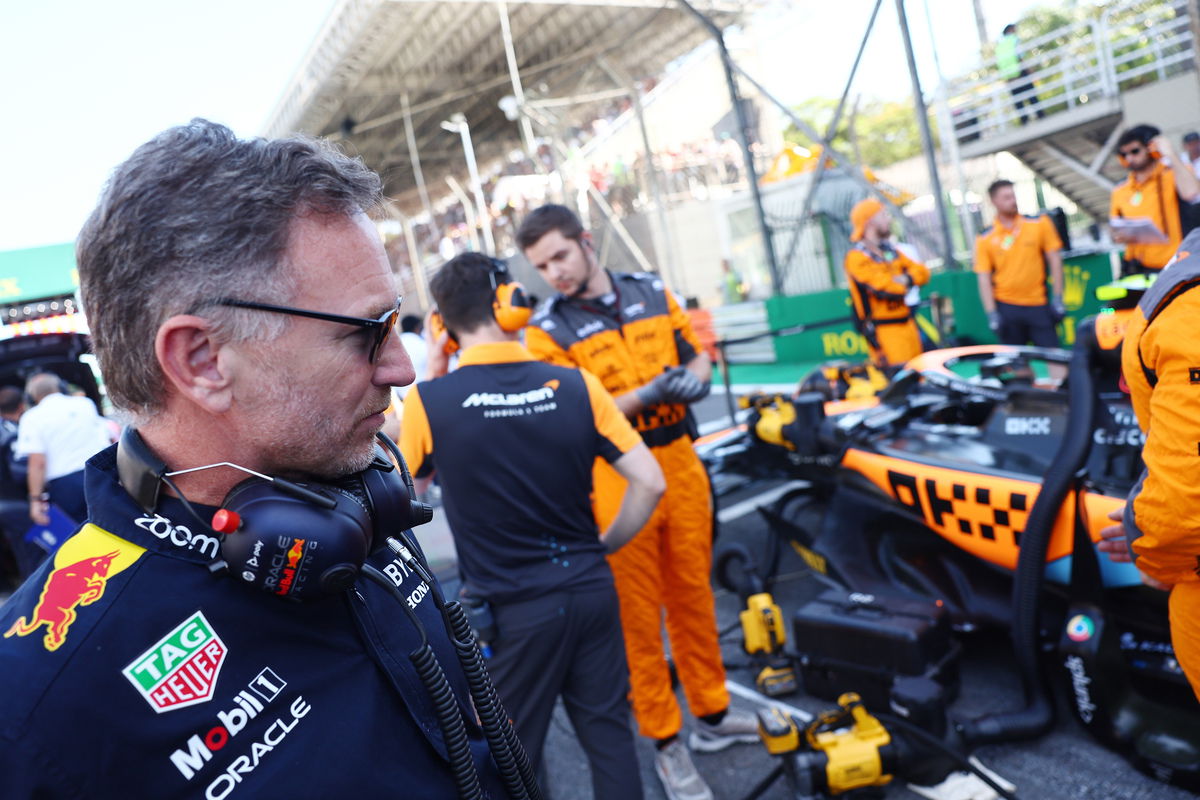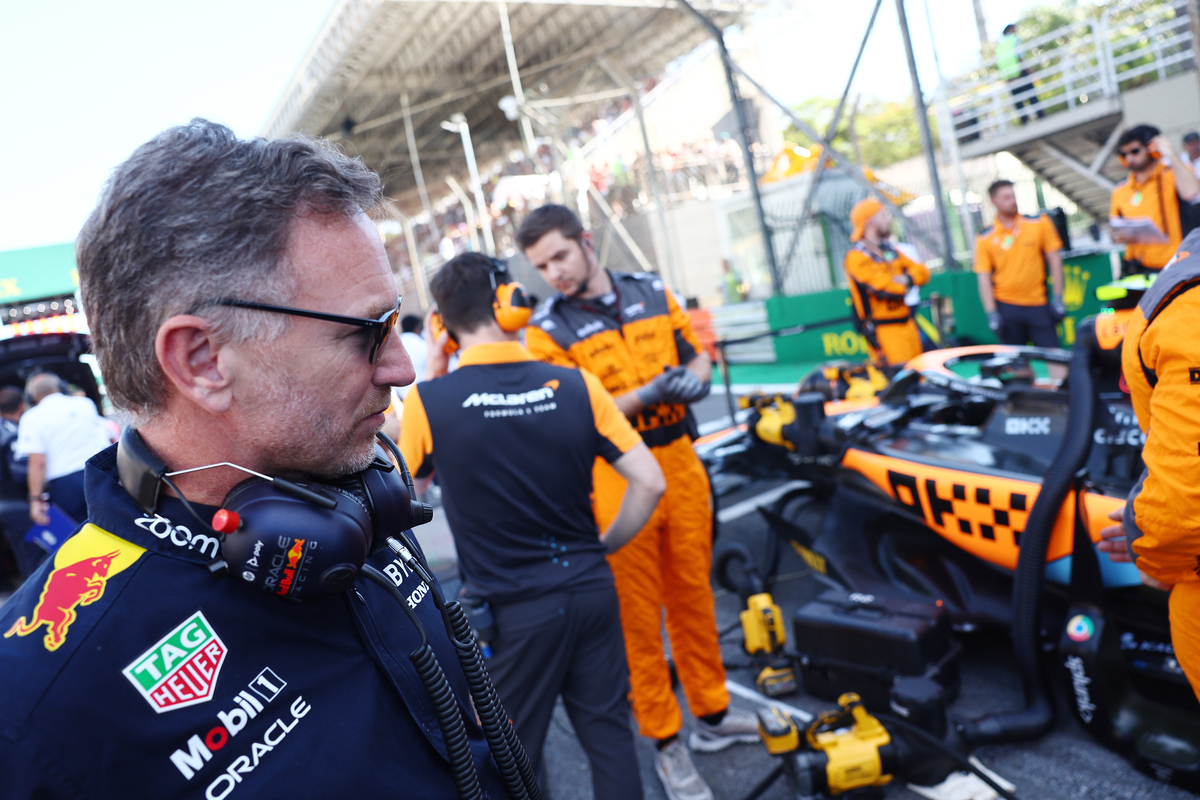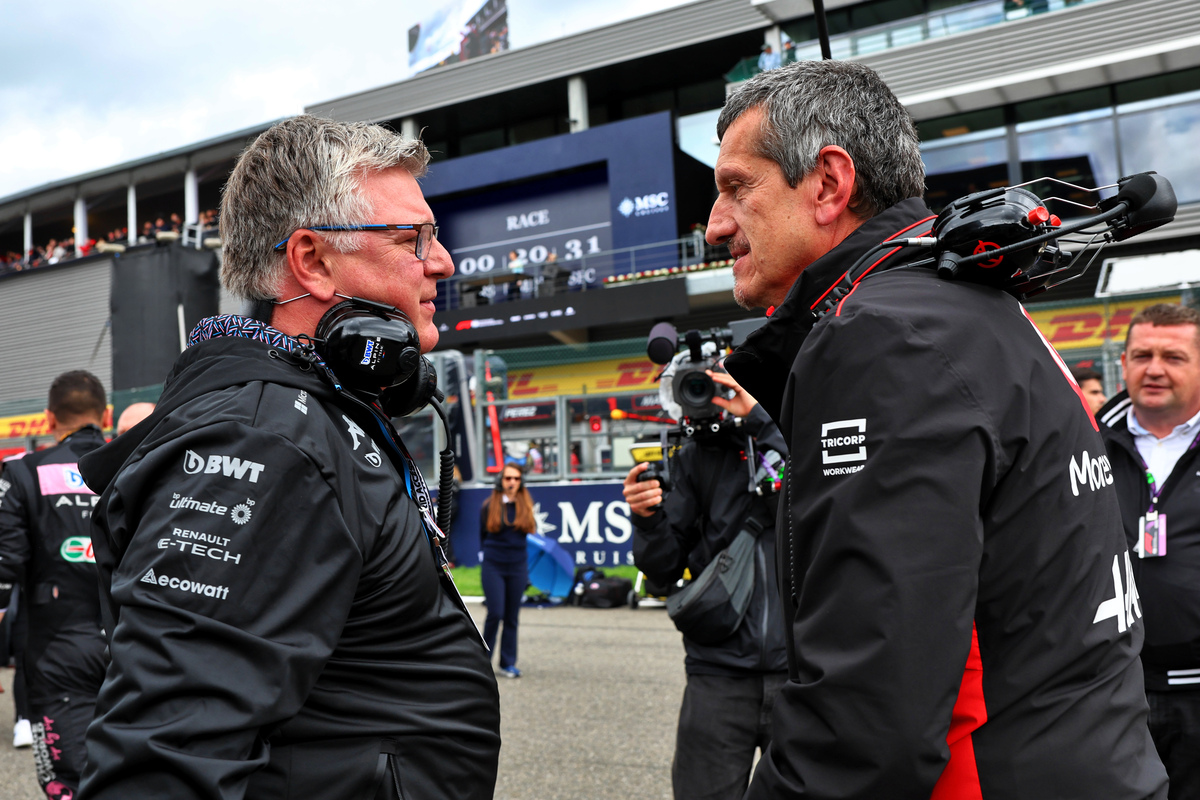

The current churn rate of team principals is in stark contrast to the days of old, where the team owner would typically assume the top job and hold it for decades.
Frank Williams, Ron Dennis, Eddie Jordan, Ken Tyrrell, and others were larger-than-life personalities who led their squads through thick and thin.
The growth of F1 in recent seasons has seen ownership structures change, with investment funds beginning to buy into the sport.
It has transformed the role of team principal from that of the ultimate person in charge to a highly paid employee responsible for the on-track performance of the business.
Evidence of that silent transition is the fate of the likes of Otmar Szafnauer and Guenther Steiner.
Szafnauer was relieved of his duties over the Belgian Grand Prix weekend while Steiner’s time with Haas was brought to a close after his team ended the 2023 championship last in the constructors’ standings.
Both were employees, and both met their demise off the back of underwhelming performances – much like Mattia Binotto did at Ferrari at the end of 2022.
Further proof of that transition can be found simply by looking at the time each of the current team principals has been in their role.
At the top of the list is Christian Horner, who is an employee of Red Bull Racing but has delivered consistently positive results – and more than a handful of championships – during his 18 years in the job.
Next best is Toto Wolff, arguably the last of the old-school team bosses as he is a third owner of the organisation, and set to remain in the job for another three years after negotiating a new contract to do so.
But after those two, the tenures have been short.

Mike Krack, the man charged with leading Aston Martin for Lawrence Stroll, has been in the hot seat for just two years and yet is the third-longest-serving team boss.
Beyond him is Ferrari’s Vasseur, who only took over in Maranello last January, while James Vowles did similarly for Williams following the retirement of Jost Capito.
Of course, some attrition and change is normal as staff are promoted or retire, the latter being the case at AlphaTauri RB.
For 2024, Laurent Mekies has taken over from Franz Tost after the Italian opted to retire following the conclusion of last season. Tost had been in charge of the ‘other’ Red Bull squad for 17 years.
Mekies is brand new in the job, as is Ayao Komatsu at Haas, the pair only moved into their respective offices this month.
At Alpine, Bruno Famin is now in control of the Anglo-French operation following the departure of Szafnauer, who’d joined following a long tenure at Force India (latterly Racing Point and then Aston Martin).
Rounding out the grid is Alessandro Alunni Bravi, who is officially the ‘team representative’ at Stake Sauber – it hasn’t had a formal team principal role since Andreas Seidl took over the running of the Swiss outfit.
He came from McLaren, who replaced him with the extremely capable Andrea Stella, joining around the same time as Fred Vasseur did at Ferrari.
With all incumbents considered, the average time served by the 10 team bosses is a little over three and a half years.
However, with Horner and Wolff omitted, the remaining eight have, on average, less than a year’s worth of experience each – and even less if we exclude Krack.
| Team | Team Boss | Start Date | Tenure |
| Red Bull Racing | Christian Horner | January 2005 | 18 years |
| Mercedes | Toto Wolff | January 2013 | 11 years |
| Aston Martin | Mike Krack | January 2022 | 2 years |
| Ferrari | Fred Vasseur | December 2022 | 1 year, 1 month |
| McLaren | Andrea Stella | December 2022 | 1 year, 1 month |
| Stake Sauber | Alessandro Alunni Bravi | January 2023 | 1 year |
| Williams | James Vowles | January 2023 | 1 year |
| Alpine | Bruno Famin | July 2023 | 6 months |
| AlphaTauri RB | Laurent Mekies | January 2024 | 2 weeks |
| Haas | Ayao Komatsu | January 2024 | 2 weeks |





















Discussion about this post